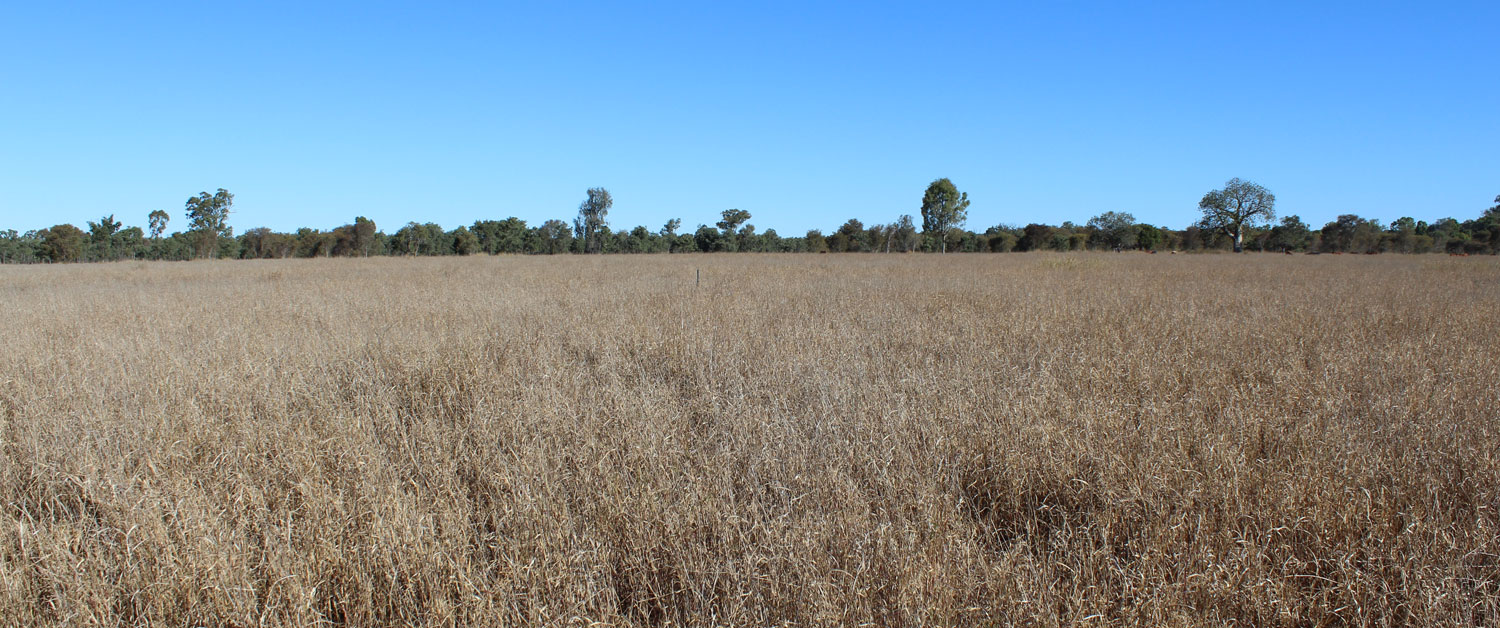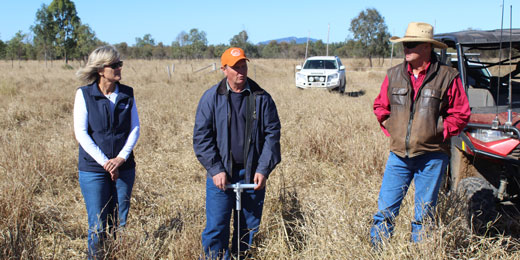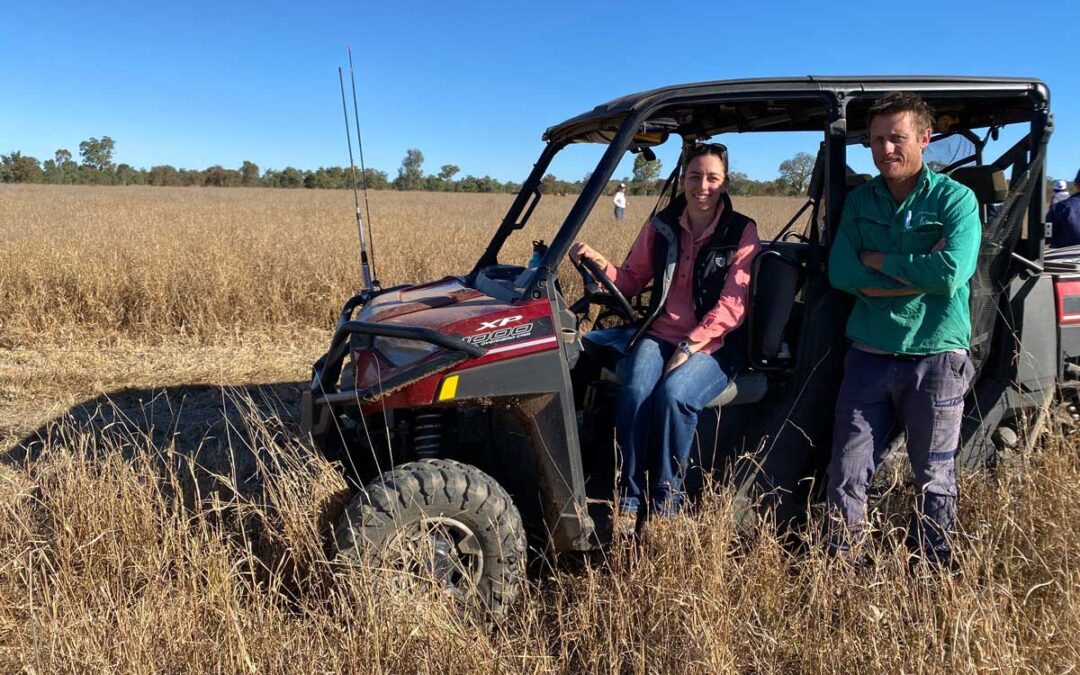ONE THOUSAND head of healthy and happy cattle grazing across 68 rotational paddocks on Kash and Jos Maclean’s Baralaba district properties served as a real-life example of the transformation of production, profitability and ecological outcomes which can be achieved through regenerative farming, at a recent RCS Producer Group Day.
The Macleans have worked with RCS since 2013 and operate Coolum and Nine, approximately 150km south west of Rockhampton, where Kash’s family have been beef producers since 1926. They were both candid in sharing their failings and successes at the day where they hosted eight Project Pioneer participants on a crisp morning on their homestead veranda in July.
“We believe that if we look after the land, the land will look after our livestock, and that is what we have seen by applying these RCS principles over the last few decades,” Kash said.
The Macleans produce organically certified trade cattle under a strategic time-controlled grazing regime in partnership with Kash’s father, Ross, who began experimenting with agricultural practices which are focused on land health in the 1990s.
RCS management principles have since been rolled out across 2400-hectare Coolum, where river flats and scrub country are complemented by improved pasture and Leucaena, and Nine, which predominantly comprises forest country across its 3600 hectares.

Although not Project Pioneer graduates themselves, Kash and Jos served as the perfect case study to highlight the results which can be accomplished through simple, but powerful on-farm management shifts, and exemplify how regenerative practices can change a business across generations.
“I was fortunate in that Dad had started laying the groundwork for regenerative grazing, and when Jos and I completed the RCS training we were able take our operation to the next level,” Kash said.
“It was no small job increasing the number of paddocks and mastering our grazing charts, but you can see in the grass and the livestock, that this approach is working.
“From our personal family standpoint, we are confident this country will still be here and be productive and profitable for our kids.”
Talking with Project Pioneer participants, most of whom have only been on their regenerative agriculture journey for about 12 months, Kash and Jos highlighted their grazing chart from last season as an example of how data should be used to make informed on-farm decisions that nourish both animals and the land.
“You could clearly see from the grazing chart we were carrying too many stock,” Kash said, who attributed the decision to disregard information from the grazing chart and purchase some inexpensive cattle to a temporary lapse in judgement which ultimately led to their country being overstocked.
“We were just banking on some rain that didn’t come, which has reiterated an important lesson for the producers here today that you need to plan on what you have in terms of grass and rainfall – not on what you think you will have.
“They were the most expensive cheap cattle we have ever purchased, and we will not be shifting away from the grazing charts again.”
Graziers attending the day came ready for a refresher in RCS practices, but also armed with their own questions and unique challenges to discuss with their peers, after applying regenerative principles to their own operations over the last year.


Coming together as producers
Seeing how far the producers had come over the last year was the greatest take away from the day for RCS Project Officer, George Stacey.
“These producers started with the Project roughly 12 months ago and it was so great to see the progression they have made in that time,” George said.
“They are on a similar journey, so bringing them together to talk about what they have butted up against is really valuable for them.”
As a Project Officer, George was there to demonstrate and remind producers of the linkages between what happens in the paddock, the reflective financial outcomes, as well as the positive impact these producers are having on the Reef.
“The day demonstrates how they are building towards the end goal and measurables of Project Pioneer, which is about increasing ground cover and reducing sediment into the Great Barrier Reef.
“It has been a very successful day.”




Project Pioneer is funded by the partnership between the Australian Government’s Reef Trust and the Great Barrier Reef Foundation. The project is delivered by RCS with support from WWF, Maia Technology, Farm Map 4D and CQUniversity.

